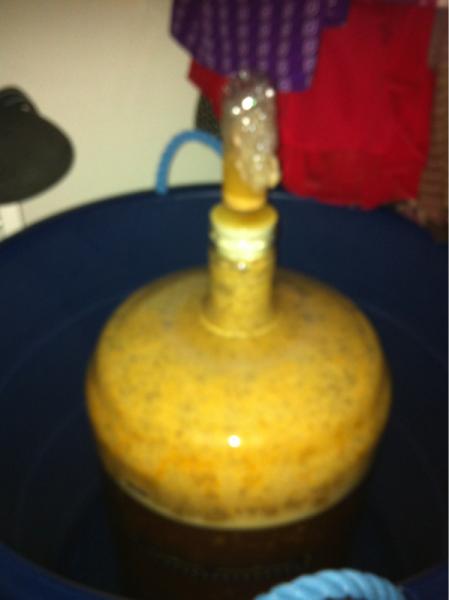Doing my first batch right now. OG was 1.5. I have a clear carboy so I could stare for hours at a time the first couple days, panicking that nothing was happening. After about 36 hours it started fermenting. Next morning it was good and bubbly. Today it is foaming through the airlock. Read about the possibility of the airlock becoming plugged, resulting in a beer shower in my spare closet. Monitored it for this evening and it's not bubbling through anymore but there's crud in the airlock. Airlock is still doing its job though. Is this something I should fix or just let it go? I think the fermenting is slowing so I'm tempted to leave it. (see picture)
2nd question... When cooking the grains the bag opened up and it boiled over a little. Tons of crud floating although most is at the bottom. My kit said I'm supposed to siphon into my bucket before bottling. It's a 6.5 gallon bucket. I'm assuming because of the grains I should filter it from the siphoning hose to the bucket. What's the best way? I read an easy home remedy by using a funnel and coffee filters. My wife suggested out metal strainer.
Any thoughts on these two issues would be greatly appreciated! Like I said, I'm a first timer so I hope I'm not alone is screwups. Also hope my beer is salvageable.

2nd question... When cooking the grains the bag opened up and it boiled over a little. Tons of crud floating although most is at the bottom. My kit said I'm supposed to siphon into my bucket before bottling. It's a 6.5 gallon bucket. I'm assuming because of the grains I should filter it from the siphoning hose to the bucket. What's the best way? I read an easy home remedy by using a funnel and coffee filters. My wife suggested out metal strainer.
Any thoughts on these two issues would be greatly appreciated! Like I said, I'm a first timer so I hope I'm not alone is screwups. Also hope my beer is salvageable.


